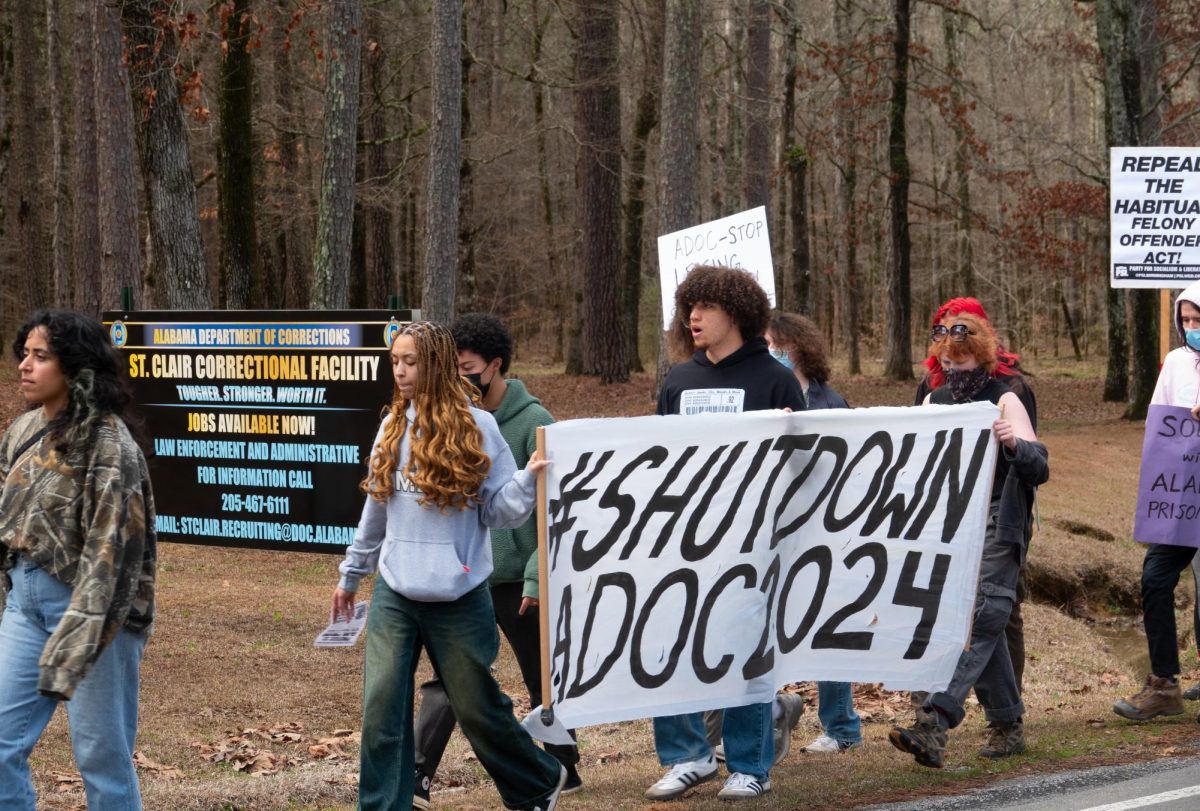Vanderbilt students with the Tennessee Student Solidarity Network and Young Palestinians of Birmingham traveled to Springville, Ala., on March 2 to protest inadequate prison conditions and Israel’s ongoing occupation of Palestine. The protest is in conjunction with a 90-day work stoppage at St. Clair Correctional Facility organized by the Free Alabama Movement.
The inmate-led advocacy group was founded in 2013 by incarcerated individuals who were transferred to St. Clair. The group has held previous work stoppages throughout the past decade. In 2016, they started the longest prison work stoppage in United States history, reaching over 24 states and an estimated 24,000 incarcerated individuals.
These protests come as the Alabama Department of Corrections is experiencing heightened scrutiny over their forced labor system. In December 2023, current and former incarcerated individuals sued ADOC over their parole system, seen by some to encourage the cycle of prisoners being forced to work under low wages and poor conditions. Last year, ADOC made $450 million from this system that has been likened to “modern-day slavery” with fast food corporations and defense contractors profiting. There is also pending litigation regarding the organ harvesting of deceased incarcerated individuals by ADOC and the University of Alabama, Birmingham. The defendants’ families allege their corpses were missing organs when returned. Cecilia Prado, an advisor for TSSN, spoke about the three deceased incarcerated victims.
“It’s usually people who don’t have anyone [family] who have people to claim them on the outside. Their autopsies get sent to UAB, or they were receiving medical care, and they somehow return without their organs, their brains,” Prado said.
According to co-founder of TSSN Daniel Wrocherinsky (B.A. ‘22, M.A. ‘23), TSSN is working with the FAM Queen team, an advocacy group composed of the spouses of incarcerated individuals inside Alabama prisons. Wrocherinsky also emphasized the importance of standing in solidarity with Alabama’s incarcerated individuals.
“The [Free Alabama Movement] conveyed to us that they were highly organized on the inside,” Wrocherinsky said. “But one of the things they never have is, but they really need — to both protect from brutal retaliation and to support the morale of folks inside — is outside support, people standing outside the jail.”
Demands
According to a TSSN Instagram post on Feb. 20, the groups’ demands include repealing the Habitual Offender Act, an Alabama law that mandates longer sentences for repeated felonies, regardless of the duration between previous sentences. The ACLU asserts that this increases the amount of incarcerated individuals serving life without parole sentences, including those who did not commit murder or sexual offenses. The group also demands the end of life without parole sentencing.
The group also demands that sentencing guidelines be made retroactive, so those currently serving can have their sentences shortened or commuted by new legislation. In addition, they call for the establishment of mandatory parole criteria, which would create guidelines allowing for the mandatory release of a prisoner. This circumvents the current system, where parole boards determine the conditions of release.
Lastly, they demand that the Alabama Department of Corrections end all gas chamber executions. In January, Kenneth Eugene Smith was executed by nitrogen hypoxia at William C. Holman Correctional Facility in Atmore, Ala. — one of 12 since the moratorium was lifted by the Supreme Court in 1976 and the first to be done using nitrogen gas. The method has been described by the Washington Post as “inhumane,” leading to “unnecessary pain” and “writhing.” The state plans to carry out a second execution by nitrogen hypoxia soon, according to NPR.
Protest
At 12 p.m. CST, 34 members of the Tennessee Student Solidarity Network and Young Palestinians of Birmingham came together at the corner of St. Clair Road at State Road 23. Wrocherinsky and Hamza, president of the Young Palestinians of Birmingham, gave speeches to the group before they marched down St. Clair Road to the prison complex. A police car trailed the group, which walked in a line down the shoulder of a road. Once they arrived, the group stood adjacent to the prison yard, where those inside could presumably hear from around 100 yards away. There were no incarcerated individuals outside.
Students from Vanderbilt, Fisk, Belmont and Nashville State were in attendance. From Vanderbilt, members of the Dores Workers Solidarity Network and TSSN were in attendance. With a megaphone, organizers gave speeches about their demands and repeated chants. Addressing the incarcerated individuals, senior Induja Kumar spoke on the importance of creating solidarity amid repression.
“The most oppressed people are the most revolutionary. And we’ve seen what you’ve been capable of in the past: shutting down prisons across the country. We don’t want you to get better wages, we want you to be free!” Kumar said.
The group stayed from 12:30-2:30 p.m. CST, standing opposite a group of Shelbyville police cars. Hunter Graves, a senior and member of Students for Justice in Palestine and the Muslim Students Association, commented on the event and its interconnectedness with Palestine’s struggle.
“These forms of oppression are linked. Like we said many times today, forced prison labor is being used to create the very weapons that kill babies in Palestine,” Graves said. “It’s important to understand that this issue has many layers and that they’re connected.”
This story was originally published on The Vanderbilt Hustler on March 4, 2024.

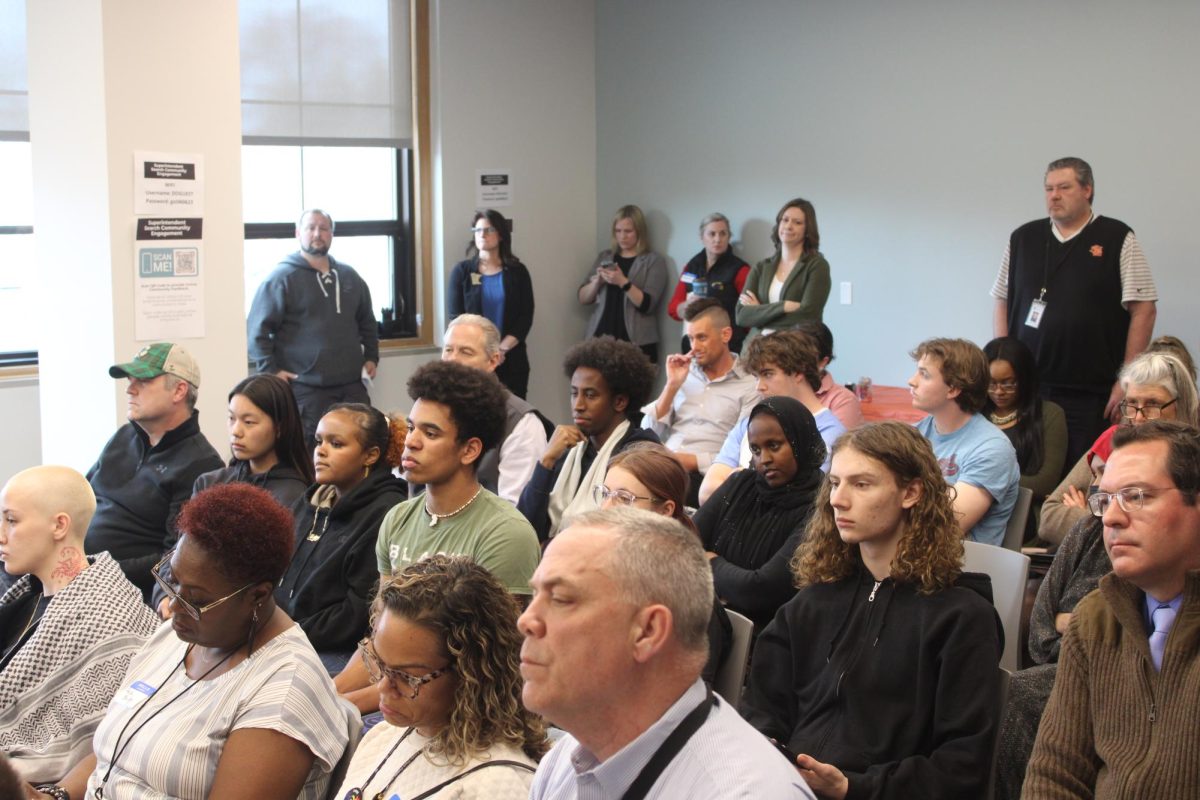
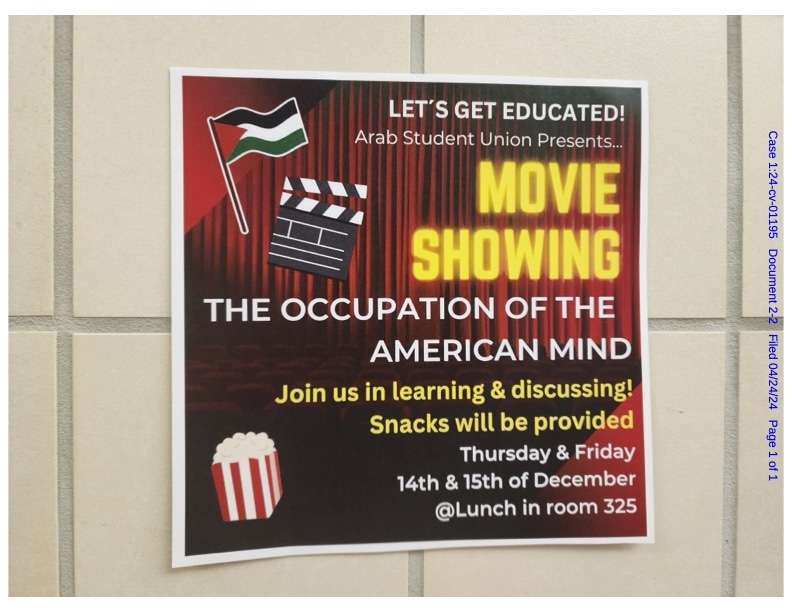
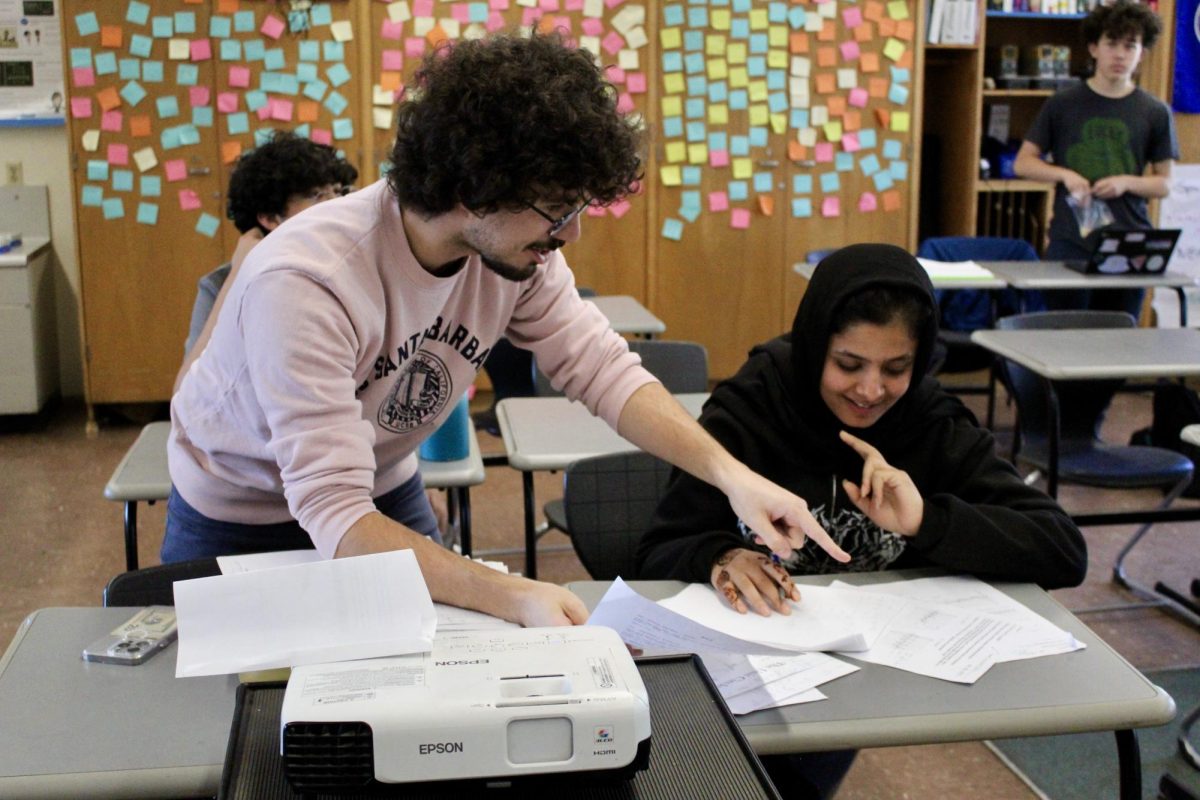
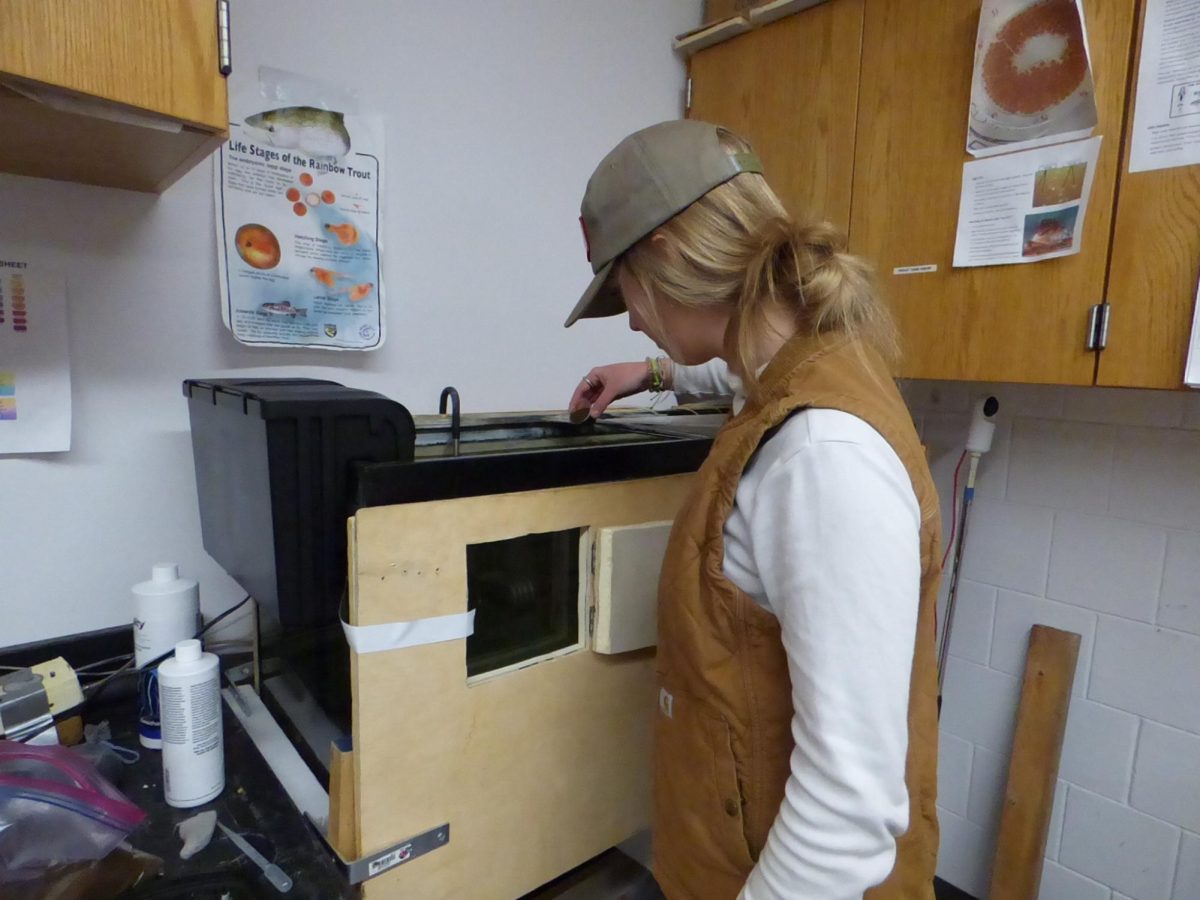
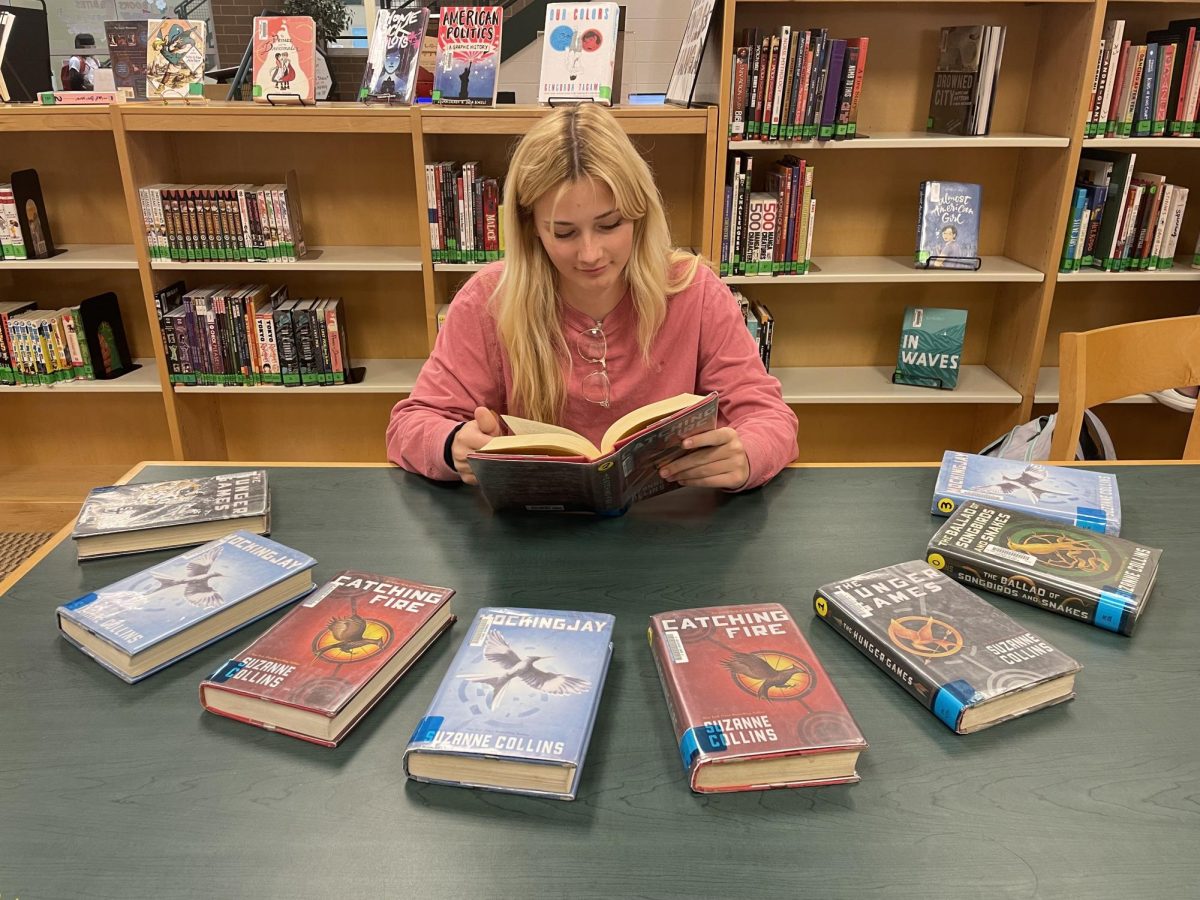

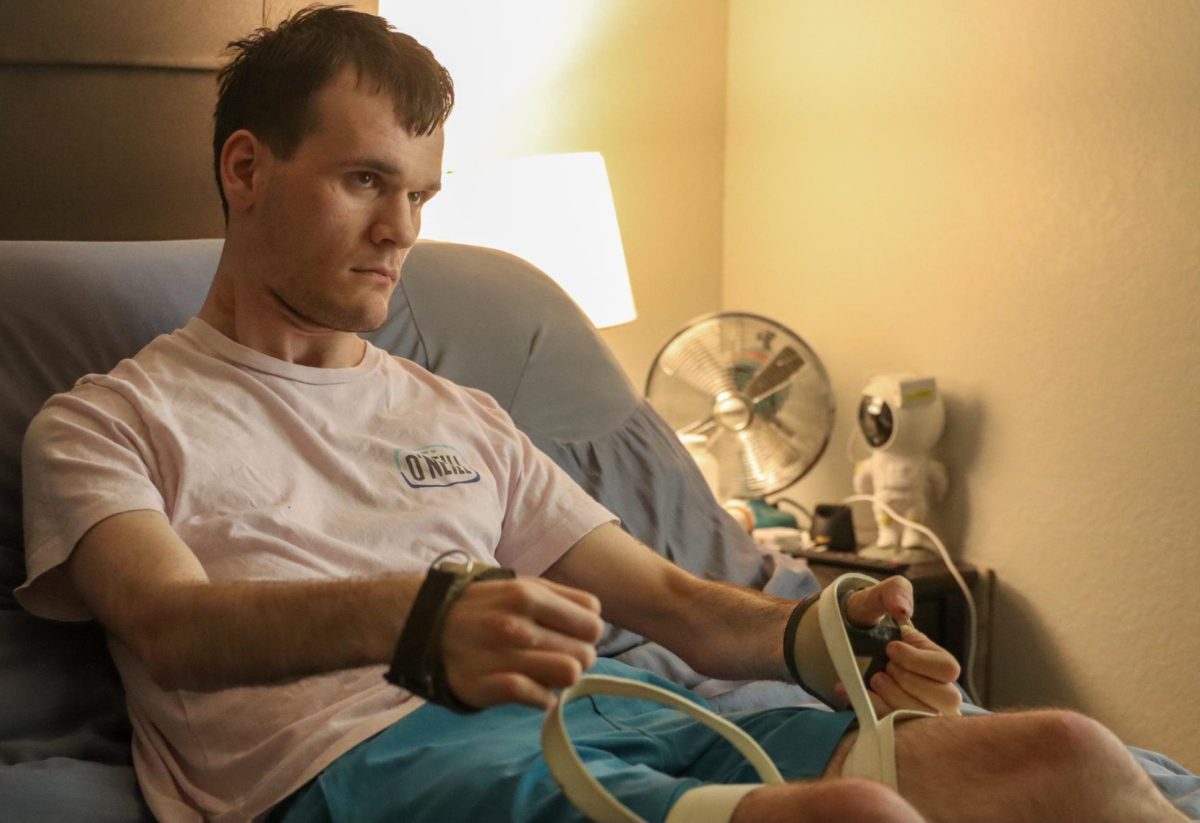



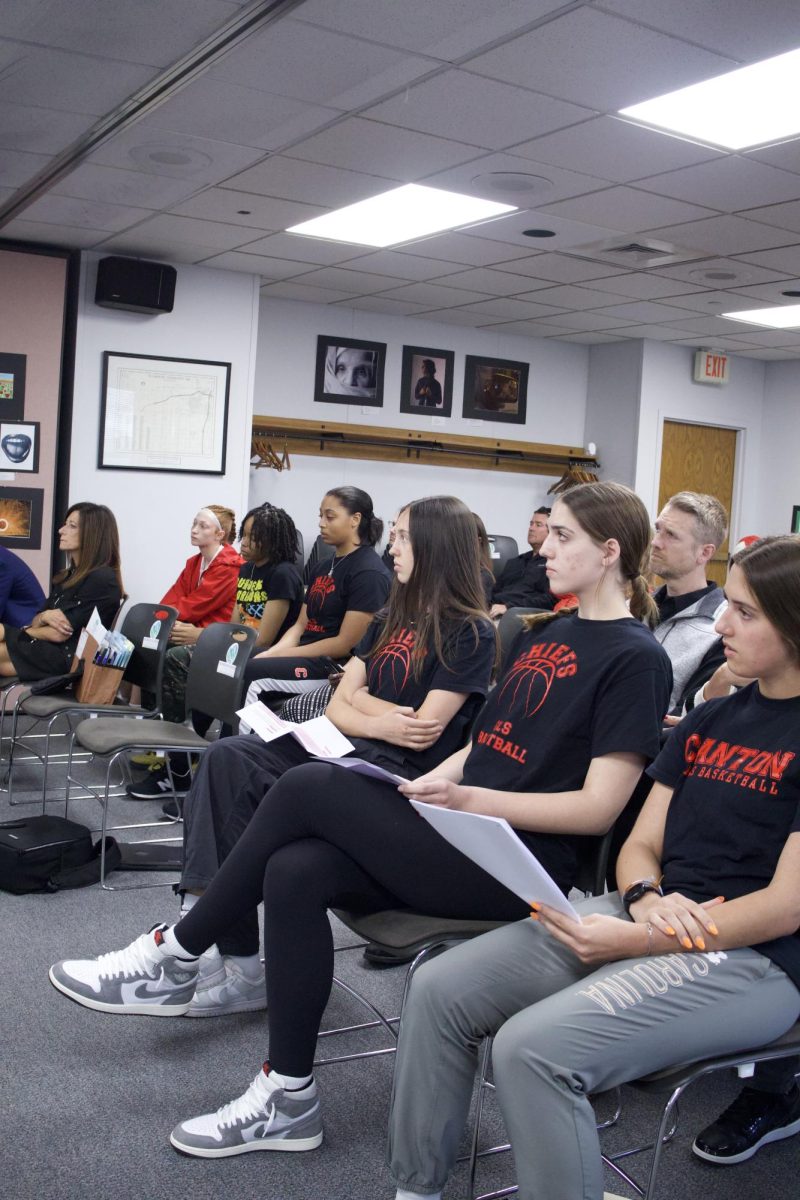

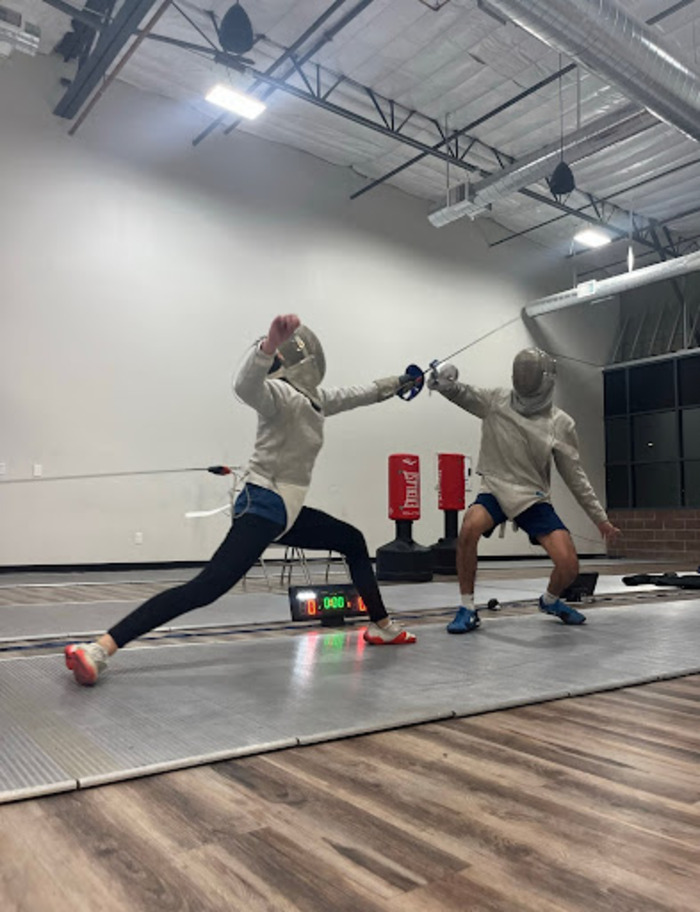
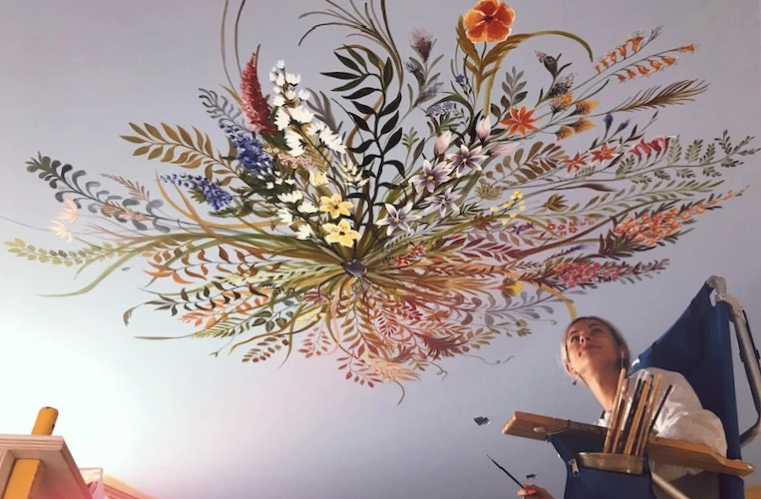
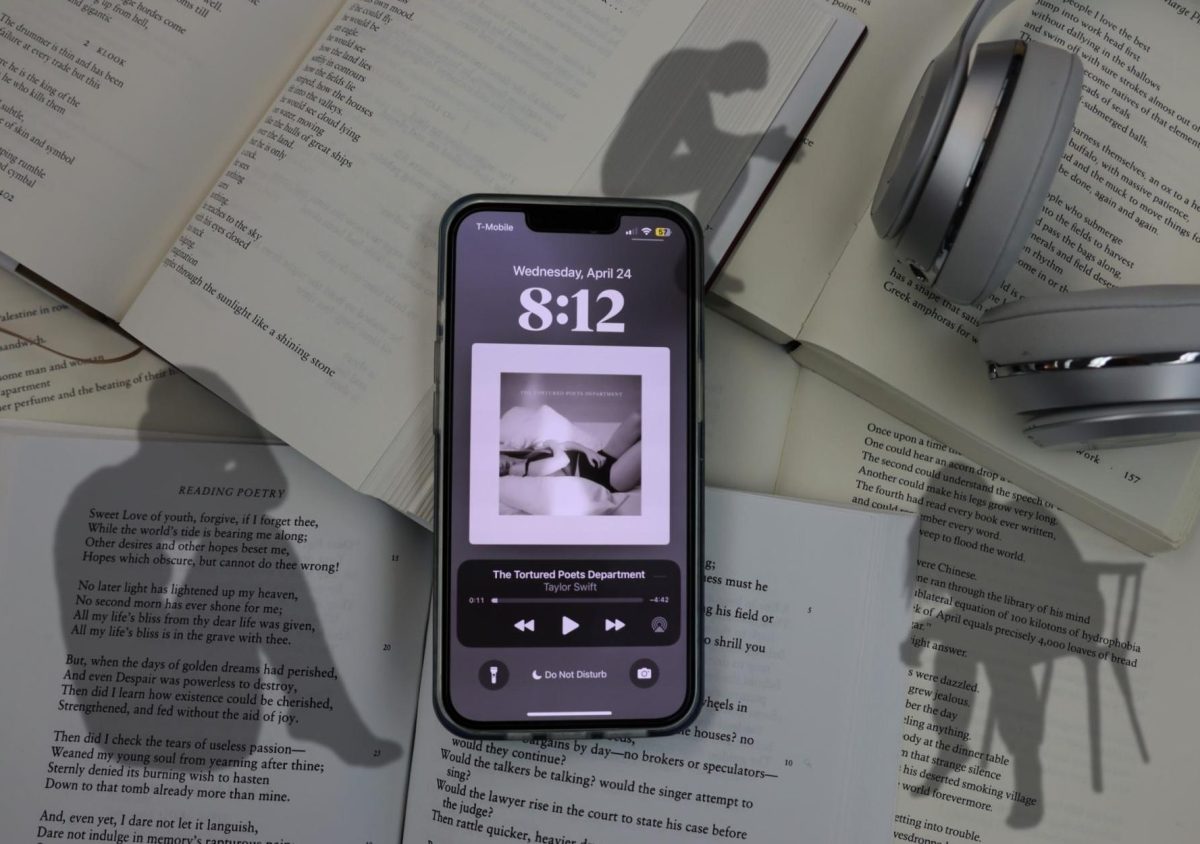














![IN THE SPOTLIGHT: Junior Zalie Mann performs “I Love to Cry at Weddings,” an ensemble piece from the fall musical Sweet Charity, to prospective students during the Fine Arts Showcase on Wednesday, Nov. 8. The showcase is a compilation of performances and demonstrations from each fine arts strand offered at McCallum. This show is put on so that prospective students can see if they are interested in joining an academy or major.
Sweet Charity originally ran the weekends of Sept. 28 and Oct. 8, but made a comeback for the Fine Arts Showcase.
“[Being at the front in the spotlight] is my favorite part of the whole dance, so I was super happy to be on stage performing and smiling at the audience,” Mann said.
Mann performed in both the musical theatre performance and dance excerpt “Ethereal,” a contemporary piece choreographed by the new dance director Terrance Carson, in the showcase. With also being a dance ambassador, Mann got to talk about what MAC dance is, her experience and answer any questions the aspiring arts majors and their parents may have.
Caption by Maya Tackett.](https://bestofsno.com/wp-content/uploads/2024/02/53321803427_47cd17fe70_o-1-1200x800.jpg)
![SPREADING THE JOY: Sophomore Chim Becker poses with sophomores Cozbi Sims and Lou Davidson while manning a table at the Hispanic Heritage treat day during lunch of Sept 28. Becker is a part of the students of color alliance, who put together the activity to raise money for their club.
“It [the stand] was really fun because McCallum has a lot of latino kids,” Becker said. “And I think it was nice that I could share the stuff that I usually just have at home with people who have never tried it before.”
Becker recognizes the importance of celebrating Hispanic heritage at Mac.
“I think its important to celebrate,” Becker said. “Because our culture is awesome and super cool, and everybody should be able to learn about other cultures of the world.”
Caption by JoJo Barnard.](https://bestofsno.com/wp-content/uploads/2024/01/53221601352_4127a81c41_o-1200x675.jpg)





